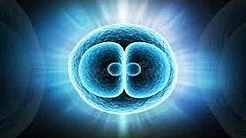https://youtu.be/-Au1gXvwpvk


I don't know what a soul is, but I believe there is an immaterial part of us that can be either "in the body" or "out of the body" (2 Cor.12:2, 3). When our bodies are alive, we are "at home in the body" and when they die, we are "absent from the body" (2 Cor.5:6, 8).What is "a Christian's soul"? Do you subscribe to the view that we have an immaterial "soul" somehow attached to a physical body? Was that view (prevalent throughout Christianity) imported from Greek thought? Could your consciousness be an aspect of the living human being (which ceases to exist after death)?
The answer I gave to the caller, in the clip linked above, was that it might seem impossible for the resurrected body to contain all the same atoms as the mortal body had contained, since:Do you really think a dead human body soon will not exist just because it disintergrates ? Don't scientists affirm that atoms cannot be created or destroyed? If atoms cannot be destroyed, then won't all the atoms that made up each human body continue to exist until God puts them together again in the resurrection, raising from the dead each of those human beings? Cannot God arrange the atoms that had formed the body in such a way that the same person will live again?
If an atheist seems driven, despite the risk to his reputation among fellow secularists, to suggest that consciousness cannot be the product of merely physical phenomena, then the Christian, who believes that God is a spirit, and that there is an entire spiritual reality, should not find the admission of an immaterial soul a difficult concept.The problem, then, is this: What kind of explanation of the development of these organisms, even one that includes evolutionary theory, could account for the appearance of organisms that are not only physically adapted to the environment but also conscious subjects? In brief, I believe it cannot be a purely physical explanation.
I certainly agree with that. A sophisticated man-made robot, no matter how much it may behave like a human being, even to the point of answering questions, and expressing sympathy, has no individual consciousness nor can it be "given" consciousness by its human creator (or should I say "assembler"?)The avowed atheist philosopher, Thomas Nagel, in his book Mind and Cosmos: Why the Materialist Neo-Darwinian Conception of Nature is Almost Certainly False" (Oxford University Press, 2012), argues that consciousness is a phenomenon that no materialistic approach to biology can account for. The materialist's assertion that consciousness is a natural product of physical brain activity is a statement of faith, not science or even reason.
I understand this passage as saying (or at least meaning) that while we are at home in this PRESENT body we are absent from the direct presence of the Lord, and we would rather be absent from this PRESENT body and to be directly present with the Lord in the RESURRECTED body. I don't think the passage says anything about "the intermediate state."Therefore we are always confident, knowing that, whilst we are at home in the body, we are absent from the Lord; for we walk by faith, not by sight. We are confident, I say, and willing rather to be absent from the body and to be present with the Lord. (2 Corinthians 5:6-8 KJ21)
I think this is precisely the often overlooked problem with your reading of Paul in 2Cor 12. Of course if we take for granted a view of souls being immaterial as you do, then we're very comfortable so reading Paul there. Is he comfortably saying what he says though? I don't think he is. Twice following the phrase "whether in the body or out of the body," twice he adds, "I don't know, God knows." To my mind, it's much more sensible that these words would be added by someone who can 'barely imagine' exactly how one could be "without" his body, and is struggling to describe the received vision.you wrote:As I said, if Paul could comfortably speak of persons being "in the body or out of the body,"...
It seems to me that Paul is essentially saying, "What benefit is it to me to endanger my life by taking a strong Christian stand, if I the dead are not raised? I might as well eat, drink, and be merry, for I will soon die, and if I am not raised to life again, that would be the end of my existence.The apostle Paul wrote:If according to a human perspective I fought wild beasts at Ephesus, what benefit [is it] to me? If the dead are not raised, let us eat and drink, for tomorrow we die. (1Co 15:32 LEB)